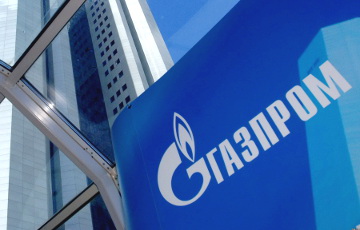Russian State Duma Urges To Prepare For Gazprom's Record Losses
17- 7.11.2023, 20:26
- 25,594

The reason is the collapse of gas exports and the need to finance the Kremlin's military budget.
The collapse of gas exports and the need to finance the Kremlin's military budget are pushing Gazprom to the brink of financial disaster.
In 2025, the gas monopoly will lose a trillion rubles due to a decrease in revenue, an increase in the tax burden and the need to pay for the gasification program, Pavel Zavalnyi, the head of the State Duma Committee on Energy, said on Tuesday. According to him, experts of the Institute of Energy Research of the Russian Academy of Sciences gave this assessment in the last study.
“There will be no exports, but the costs will remain,” Zavalnyi, who has worked in the gas industry for almost 30 years and worked his way up from compressor station engineer to top manager of Gazprom's “daughters”, described the situation.
According to the deputy, Gazprom is “driven into losses”: with already obvious difficulties, the MET for gas condensate will be increased for the company from next year. But there is de facto nothing to pay additional fees to the budget of the gas monopoly.
Having cut off gas to most European countries and cut exports to a minimum since the last years of the USSR, Gazprom received a net loss of 1.2 trillion rubles in the second half of 2022. In January-June 2023, the company managed to make a profit (296 billion rubles), which, however, compensated only one sixth of the accumulated losses.
For more than a year, Gazprom has been living in a cash gap mode, when the receipts on the account do not cover the outflows, and it is forced to spend cash reserves to pay expenses. The company's “cash cushion” for the period from July 2022 to July 2023 “deflated threefold — from 2 to 0.7 trillion rubles.
The Kremlin is counting on rescue from China, offering to increase gas supplies by a factor of 5 — up to 100 billion cubic meters per year. But the pipeline project “Power of Siberia-2” with a capacity of 50 billion cubic meters, which President Vladimir Putin has been promoting for almost 8 years, has not been met with enthusiasm in Beijing so far.
In 2023, Putin met twice with the President of the People's Republic of China, Xi Jinping, and the Kremlin each time announced the discussion of gas cooperation. But the long-awaited contract was never signed — neither in the spring, when Xi Jinping visited Moscow, nor in October, when Putin made a return visit to Beijing.
This year, China will buy 22 billion cubic meters of gas from Russia through the Power of Siberia-1 pipeline launched in 2019, which, however, compensates for only one eighth of the former export to Europe, which at its peak reached 170-180 billion cubic meters per year.










